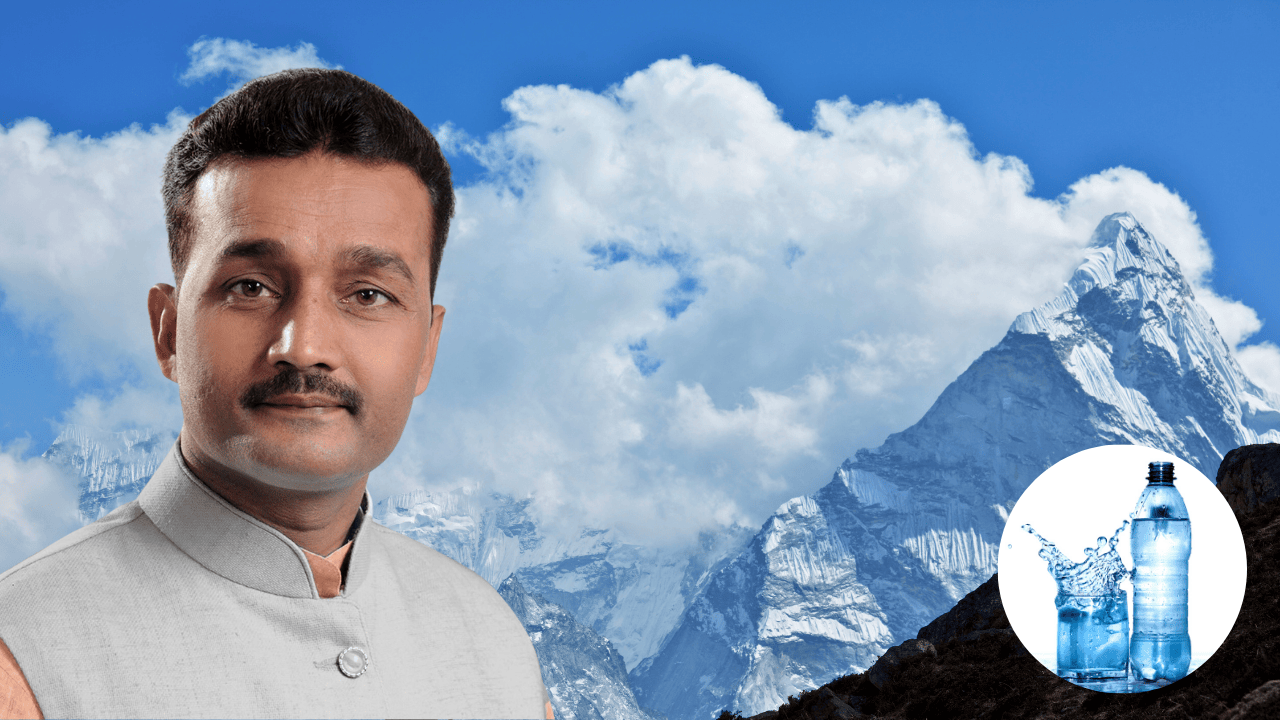
Nepal’s Minister for Drinking Water, Pradip Yadav, has proposed an ambitious plan to export Himalayan water, leveraging the country’s abundant natural resources to tap into the lucrative global bottled water market. This initiative aligns with global health trends where consumers increasingly seek pure, natural water.
The proposal comes from Pradip Yadav, who emphasizes the economic potential of Nepal’s pristine water sources. The initiative aims to generate revenue and promote sustainable water resource management against the backdrop of Nepal’s rich water reserves.
The plan involves exporting bottled water sourced from the Himalayas. Nepal, renowned for its untouched and mineral-rich water sources, presents a unique offering in the bottled water sector.
The proposal was highlighted following discussions and studies on the feasibility and economic viability of water export, particularly in the wake of rising global demand for clean drinking water.
Himalayan Water Market Potential
Nepal’s entry into the bottled water export market is timely. The global bottled water market is projected to reach $505.19 billion by 2028, growing at a CAGR of 11.1%. The purity of Himalayan water places Nepal in an advantageous position to capitalize on this growth.
Exporting Himalayan water could significantly boost Nepal’s economy. Previous exports have shown a stark increase from NPR 34,000 a decade ago to NPR 543.952 million recently. Major markets include Bhutan, India, Hong Kong, and several European countries, with expanding opportunities in the Middle East and other Asian regions.
Challenges and Strategic Moves
Despite the high demand, Nepal faces challenges such as production limitations and the need for infrastructure improvements to ensure sustainable and consistent export capabilities. The government is considering establishing special economic zones for beverage production to streamline operations and enhance export capacity.
The proposal also considers the environmental impact of bottling and exporting water. Sustainable practices are essential to maintain the ecological balance and ensure that the exploitation of water resources does not lead to depletion or pollution.
Conclusion
Minister Yadav’s proposal to export Himalayan water is not just about economic gain but also positions Nepal as a key player in the global health and wellness sector. With strategic planning and investment in infrastructure, Nepal could see substantial economic benefits while promoting sustainable resource use.




![Animal Movie Box Office Collection [Day Wise List] Animal Movie Box Office Collection - Day Wise List](https://localpatrika.com/wp-content/uploads/2023/12/Animal-Movie-Box-Office-Collection-Day-Wise-List-238x178.jpg)
![How To Check SIM Owner Name in NTC [Step-by-Step Guide]](https://localpatrika.com/wp-content/uploads/2024/08/How-To-Check-SIM-Owner-Name-in-NTC-100x75.webp)
![Nothing Phones Price in Nepal [Updated 2024]](https://localpatrika.com/wp-content/uploads/2024/08/Nothing-Phones-price-in-Nepal-100x75.webp)

